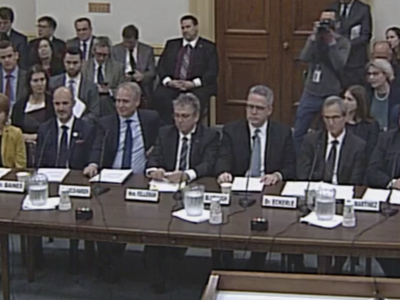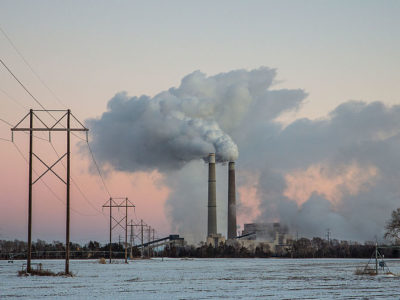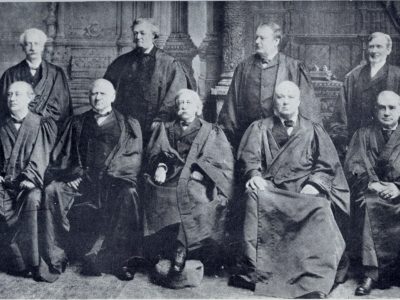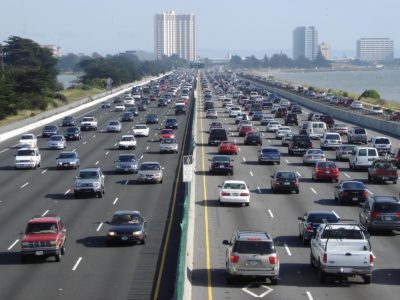Air Quality
A Dozen Strategies for the Struggle With Big Oil
Big Oil will fight against energy transformation. How do we fight back?
The oil industry is enormous – something like 2-3% of global GDP. Individuals firms like ExxonMobil earn tens of billions of dollars each quarter. Controlling climate change will mean drastic curtailment in the coming decades of the industry’s major products. There’s no way that the industry will accept this lying down, and it’s a formidable …
Continue reading “A Dozen Strategies for the Struggle With Big Oil”
CONTINUE READINGHow Can We Achieve a Carbon-Neutral Transportation Sector by 2050?
Developments from a hearing before the House Subcommittee on Environment and Climate Change
Today, the Subcommittee on Environment and Climate Change of the House Committee on Energy and Commerce held a hearing entitled “Building a 100 Percent Clean Economy: Solutions For Planes, Trains and Everything Beyond Automobiles.” As the title suggests, the Subcommittee’s hearing sought to probe opportunities to decarbonize the transportation sector while focusing on modes of …
Continue reading “How Can We Achieve a Carbon-Neutral Transportation Sector by 2050?”
CONTINUE READING2020 in the Courts: A Preview
Some major new cases will be filed; older ones will result in major decisions.
There are going to be some significant environmental cases over the next year. In addition, some important new cases will be filed now or in the near future, which may have produced some interesting rulings. It will probably take more than a year, however, for some of the big new cases down the turnpike to …
Continue reading “2020 in the Courts: A Preview”
CONTINUE READINGAnother Court Loss for the Trump EPA
D.C. Circuit enforces deadlines for air pollution compliance
On Friday, the D.C. Circuit issued a brief order in a case called New York v. EPA. In some respects, the order was a foregone conclusion, given the same court’s September ruling in a case called Wisconsin v. EPA. But it’s nonetheless noteworthy. Both the New York and the Wisconsin case involved a section in …
Continue reading “Another Court Loss for the Trump EPA”
CONTINUE READINGThe Pro-Environmental Lochner Court
How a conservative Court defended environmental protection a century ago.
Like today’s Court, the Supreme Court a century ago was dominated by conservatives. The Lochner era, from around 1900 to 1935, was named after the most notorious case of that period. The Lochner case, which struck down a maximum hours law for workers, epitomized the conservative Supreme Court of that era. Yet that conservative Court …
Continue reading “The Pro-Environmental Lochner Court”
CONTINUE READINGWhy is Newsom vetoing SB 1?
Comparing the Governor’s statements with the text of the bill
The California legislature recently passed SB 1, which would translate into state law a range of federal environmental and worker safety standards that were in place before the inauguration of President Trump to protect against federal roll backs in those areas. However, Governor Newsom has indicated he will veto SB 1, on the grounds that …
Continue reading “Why is Newsom vetoing SB 1?”
CONTINUE READINGWhy are automakers fighting Trump’s emissions rollback?
The answer may lie in the electric vehicle investments the industry is busy making
As we move ever deeper into an all-out legal war between California and the Trump Administration over rollbacks of automobile emissions standards (something Ann, Cara, and Julia have been covering very well), I want to explore in a little more depth why the automakers have been so resistant to Trump’s rollback efforts. The auto industry …
Continue reading “Why are automakers fighting Trump’s emissions rollback?”
CONTINUE READINGWelcome to the Next Phase of the Great California-Trump Car Wars
First lawsuit filed, more to come
California didn’t wait long to file its first court challenge to the rules just finalized by the Trump Administration related to California’s GHG and ZEV car emissions standards (discussed here and here by Julia and Ann). Here’s the complaint filed by California together with 23 other states, along with the cities of LA and NY. …
Continue reading “Welcome to the Next Phase of the Great California-Trump Car Wars”
CONTINUE READINGEPA/Transportation Announcement of California Waiver Revocation is Full of Falsehoods and Irony
How Many Misstatements Can You Find?
This morning, the Environmental Protection Agency and Department of Transportation formally announced — as expected — that the Trump Administration is revoking California’s waiver to set its own vehicle standards. Yesterday, Trump tweeted the news, coupling it with falsehoods claiming that the rollback would save lives and save consumers money. As I blogged yesterday, both …
CONTINUE READINGTrump Announces Waiver Rollback on Twitter
Revoking California’s Clean Air Act Waiver Is Bad Policy and Legally Indefensible
This post was originally published on the American Constitution Society’s Expert Forum on September 18, 2019. President Trump announced the revocation on Twitter this morning. It’s not news that the Trump administration has been planning, via its so-called SAFE Rule, to freeze Obama-era fuel economy standards, roll back tailpipe greenhouse gas (GHG) emissions standards, and …
Continue reading “Trump Announces Waiver Rollback on Twitter”
CONTINUE READING








